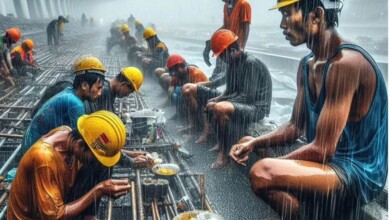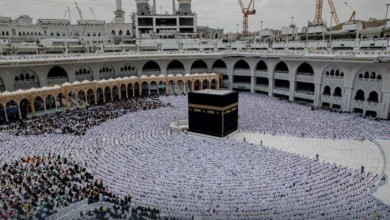The House that stood alone (Part V)
By Yusuf Bulafu
Assalam alaykum warahmatullahi wabarakatuh
Cont’d …
Not a reward, but a prelude
The obliteration of Abraha’s army was not the climax of the story — it was the prologue. It marked not the end of an era, but the beginning of a new one. While the Quraysh basked in the afterglow of a miraculous deliverance, the deeper reality was that the intervention from above had nothing to do with their merit. The divine hand that protected the Kaʿbah did so not because its custodians were righteous, but because the House itself was sacred, and because a world-changing event was about to unfold.
It is easy to imagine how Quraysh interpreted the event. They, after all, had done nothing to repel the invaders. They had fled to the hills and watched helplessly as their city stood vulnerable. Yet not a single stone struck their homes. Not a single soldier entered their gates. Instead, the invading army was dismantled in a display of celestial force. To Quraysh, this must have felt like an affirmation of their centrality — a divine endorsement of their role as stewards of the sanctuary.
But the reality was far more humbling.
Allah’s destruction of the People of the Elephant was not an affirmation of idol worship, nor an endorsement of the status quo. It was a divine declaration: that the House of Ibrahim would not fall to arrogant invaders, and that its true purpose — as a place of monotheistic worship — would soon be restored. The Qur’an, in the next chapter after Surat al-Fil, clarifies this point directly. Surat Quraysh, with its succinct verses, connects the divine protection of Makkah to a moral and spiritual demand:
“For the protection of Quraysh —
Their protection in the journeys of winter and summer —
Let them worship the Lord of this House,
Who has fed them against hunger and made them safe from fear.” (Quraysh 106)
The surah begins by acknowledging the unique status of Quraysh. Their commercial caravans, protected by tribal treaties and divine favor, had made them rich and secure. But then comes the imperative: “Let them worship the Lord of this House.” In other words, the security and prosperity they enjoyed should lead them to gratitude and monotheism, not arrogance and complacency.
Yet Quraysh, as a society, failed to reflect. Their pride in being the “people of the Kaʿbah” only deepened their tribalism and attachment to idols. Instead of cleansing the House of the 360 idols that surrounded it, they continued to serve their political and economic interests through idol worship. They profited from pilgrimage, used the Kaʿbah as a tool of influence, and gradually distanced themselves from the legacy of Ibrahim. But Allah had already prepared a different path.
In the very year that Abraha’s army was turned to dust, a boy was born to the clan of Hashim. His father, ʿAbdullah, had died before his birth. His mother, Aminah, named him Muhammad. Raised as an orphan, watched over by his grandfather ʿAbdul-Muttalib and later by his uncle Abu Talib, Muhammad would grow up in the city that Allah had just defended — a city he would later challenge, reform, and lead.
The miracle of Ashabul-Fil, then, was not just a dramatic story. It was the first public sign that Makkah was under divine attention once more — that Prophethood was near, and that the House built by Ibrahim would soon return to its intended purity.
This perspective transforms how we view the event. The birds, the stones, the destroyed army — all of it was a setup, a prelude, a silent trumpet heralding the dawn of the final revelation.
It also serves as a timeless warning: divine favors are not permanent unless met with gratitude and reform. Security, wealth, and religious status are tests. The Quraysh passed none of them — but their city, by Allah’s will, remained intact so that a light greater than any empire could ever produce would one day rise from within it.
To be continued …






